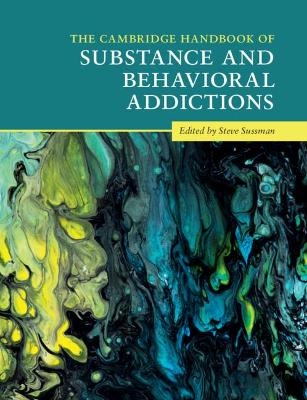
The Cambridge Handbook of Substance and Behavioral Addictions
Cambridge University Press (Verlag)
978-1-108-44785-0 (ISBN)
Written by leaders in the addictions field, 100 authors from six countries, this handbook is a thoroughly comprehensive resource. Philosophical and legal issues are addressed, while conceptual underpinnings are provided through explanations of appetitive motivation, incentive sensitization, reward deficiency, and behavioral economics theories. Major clinical and research methods are clearly mapped out (e.g. MRI, behavioral economics, interview assessments, and qualitative approaches), outlining their strengths and weaknesses, giving the reader the tools needed to guide their research and practice aims. The etiology of addiction at various levels of analysis is discussed, including neurobiology, cognition, groups, culture, and environment, which simultaneously lays out the foundations and high-level discourse to serve both novice and expert researchers and clinicians. Importantly, the volume explores the prevention and treatment of such addictions as alcohol, tobacco, novel drugs, food, gambling, sex, work, shopping, the internet, and several seldom-investigated behaviors (e.g. love, tanning, or exercise).
Steve Sussman is Professor of Preventive Medicine, Psychology, and Social Work at University of Southern California, USA. With over 500 publications to his name, he is editor of the journal Evaluation & the Health Professions and author of Substance and Behavioral Addictions: Concepts, Causes, and Cures (2017).
List of figures; List of tables; List of contributors; Foreword; Preface; Acknowledgements; Part I. Concepts of Addiction: 1. Appetitive needs and addiction; 2. Behavioral economics and addictive disorders; 3. Sensitization of incentive salience and the transition to addiction; 4. Philosophical issues in the addictions; Part II. Clinical and research methods in the addictions: 5. Human neurobiological approaches to hedonically motivated behaviors; 6. Human laboratory paradigms in addictions research; 7. Behavioral economic considerations of novel addictions and non-addictive behavior: research and analytic methods; 8. Substance and behavioral addictions assessment instruments; 9. Qualitative approaches to the study of substance and behavioral addictions; Part III. Levels of analysis and etiology: 10. Neurobiology of substance addictions; 11. Neurobiological foundations of behavioral addictions; 12. Multiple memory systems, addiction, and health habits: new routes for translational science; 13. The role of culture in addiction; 14. The physical and social environments as determinants of health: implications for substance and behavioral addictions; Part IV. Prevention and treatment: 15. Adolescent drug misuse prevention: challenges in school-based programming; 16. Treatment of alcohol, tobacco, and other drug (ATOD) misuse; 17. Prevention and treatment of 'food addiction'; 18. The prevention and treatment of gambling disorders: some art, some science; 19. Prevention and treatment of sex addiction; 20. Passionate love addiction: an evolutionary survival mechanism that can go terribly wrong; 21. Prevention and treatment of compulsive buying disorder; 22. Prevention and treatment of work addiction; 23. Gaming disorder and its treatment; Part V. Ongoing and future research directions: 24. Precision behavioral management (PBM): a novel genetically guided therapy to combat reward deficiency syndrome (RDS) relevant to the opiate crisis; 25. Novel psychoactive substances: a new challenge for prevention and treatment; 26. Impaired physicians; 27. Feedback models for gambling control: the use and efficacy of online responsible gambling tools; 28. Food versus eating addictions; 29. Measurement, prevention and treatment of exercise addiction; 30. Tanning as an addiction: the state of the research and implications for intervention; 31. Considering the overlap and non-overlap of compulsivity, impulsivity, and addiction; 32. Anhedonia in addictive behaviors; 33. Mindfulness-based interventions applied to addiction treatments; 34. American legal issues in addiction treatment and research; Index.
| Erscheinungsdatum | 13.08.2020 |
|---|---|
| Reihe/Serie | Cambridge Handbooks in Psychology |
| Zusatzinfo | Worked examples or Exercises |
| Verlagsort | Cambridge |
| Sprache | englisch |
| Maße | 215 x 278 mm |
| Gewicht | 1230 g |
| Themenwelt | Geisteswissenschaften ► Psychologie ► Klinische Psychologie |
| Geisteswissenschaften ► Psychologie ► Sozialpsychologie | |
| Medizin / Pharmazie ► Medizinische Fachgebiete ► Psychiatrie / Psychotherapie | |
| ISBN-10 | 1-108-44785-6 / 1108447856 |
| ISBN-13 | 978-1-108-44785-0 / 9781108447850 |
| Zustand | Neuware |
| Haben Sie eine Frage zum Produkt? |
aus dem Bereich


